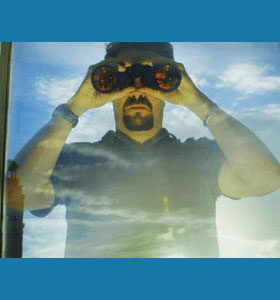
The bodyguard career path is a great way to make lots of money while enjoying an exciting and often rewarding vocation. However, bodyguarding is certainly not a job for everyone, since there are risks involved and specialized training is necessary.
Is bodyguarding safe? How do I find jobs and enjoy a long career in this rather mysterious field of investigation and private security? What tips will help me to succeed as a professional bodyguard? If these questions are on your mind, then you are in the right place to get answers.
This post details the bodyguard job path. We will provide some expert guidance for investigators who want to transition into bodyguarding full-time or as an extra income stream.
Bodyguard Career Training
It would be foolish (and incredibly dangerous for you and your clients) to even consider a career as a personal guard without the necessary training. Virtually all bodyguards have extensive former military or law enforcement expertise, as well as a strong sense of duty and personal conviction. Even if you already have a good foundation of armed service or police experience, taking some dedicated bodyguard training course work will prove very helpful.
Some of the skills you will need to master include all of the following personal attributes:
- Tactical driving
- Self defense
- Tactical shooting
- Threat assessment
- Knowledge of the law
Other helpful skills that will come in handy for professional bodyguards include:
- Stalker investigation experience
- Explosives ordinance
- Criminal investigation background
Bodyguard Risks
Bodyguarding is dangerous. You are making a covenant with your client to safeguard them at all costs, including putting your own life on the line to protect them. This is not a job for those who are weak of heart or character.
Most bodyguards will have to deal with some degree of physical violence at some point in their career. Some might be the target of violence, while others might have to inflict violence on others to protect their client. Neither of these actions is without consequences to mind and body.
The nature of the job might also expose bodyguards to legal action against them, either in criminal or civil form. This is why all personal guards must know the exact parameters of the law governing their behavior in every single area where they might work. For guards who travel with clients, this alone can be a tremendous challenge. It is also noteworthy that in some areas of the world, bodyguarding is illegal altogether and carries strict criminal penalties.
Bodyguard Career Aspirations
Most professional investigators can make the leap into being bodyguards full time or at least part time. For investigators who have the proper background training in security, firearms, self defense and other necessary skills, becoming a full time bodyguard might bring in more money and a steadier paycheck than general PI work. If you qualify to become a skilled bodyguard, then you might want to consider this career path on the basis of earnings potential alone.
Investigators who have some of the necessary skills but fall short of others, might still be able to work in some bodyguard capacity, such as part of a team for shorter-term assignments with lower risks involved. However, it is best to enter into the private security field in other capacities first and gain some experience before really working in a personal guard capacity. There are many other related jobs that you can do to diversify your income as a professional detective.
Remember too that many investigation clients can benefit from bodyguarding services, as well. People who contact you regarding stalkers, threats, blackmail, kidnapping, and other types of serious case profiles might feel very uneasy when they are alone and unprotected. Offering bodyguard services to these clients will improve your ability to keep them safe while investigating their primary case work. This makes bodyguard work a natural fit for some types of investigative agencies, depending on the focus of the business.


